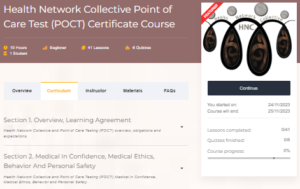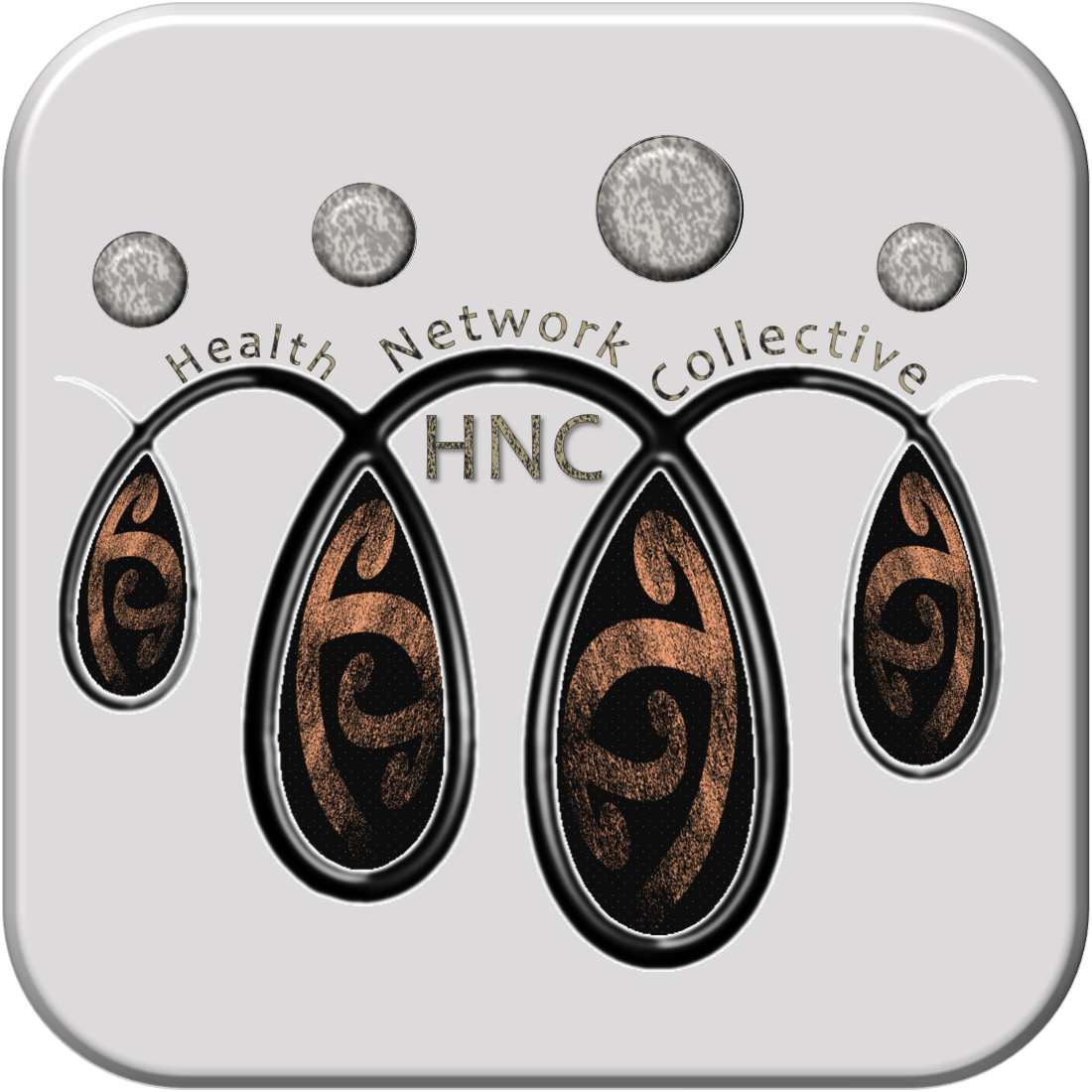This FAQ and information contained herein is for general information purpose only and is not intended for or to be used for diagnosis, treatment or any clinical use. Health Network Collective recommends seeking professional advice in the event any further advice or definitive qualified opinion is required.
Here’s some of the more common, and less common, frequently asked questions and answers. The info is based on researched and qualified materials resources and sites with references where needed. If there are any questions or information you would like to see included please do let us know by emailing us by clicking here.
Simply click on the broad category title below and it expands to reveal the sub questions, articles and news.
Health Network Collective (2)
How can we improve efficacy of an informally qualified community of testers and their structured inclusion in established systems through leveraging Emerging Disruptive Technologies (EDT) and associated technologies. Survey Available Here
Methodology: Our model for development is based on Te Whare Tapa Whā, chosen for the grounded and community approach to this problem. A holistic model of health that describes health as a wharenui (meeting house) with the four walls representing taha wairua (spiritual wellbeing), taha hinengaro (mental and emotional wellbeing), taha tinana (physical wellbeing) and taha whānau (family and social wellbeing). The main research question was applied to these four components and 33 sub versions extrapolated for survey to reflect: EDT applications, formalisation & recognition of qualification; Rangatiratanga Raraunga (Data sovereignty); management of test by-products; religious, ethnic and cultural impacts; and long-term benefits. On analysis the questions have been grouped back into the 4 main sub questions for reporting.
Live analysis available at analysis
Health Network Collective are undertaking a Masters (Technological Futures) Research Survey looking at how emerging technologies can support kaiawhina, peers and non-regulated workforce with community-based Hepatitis C (HCV) Point of Care Testing (POCT), linking to care, and navigating to possible cure through a supported systemized approach. The survey is available at survey, with live analysis available at analysis
The anonymized survey, based on Te Whare Tapa Whā modelling, is online and of 10-15 minutes duration.
The survey consists of one main question, with four supporting questions, extrapolated to thirty three sub questions for the survey. The main question being; –
How can we improve efficacy of an informally qualified community of testers and their structured inclusion in established systems through leveraging Emerging Disruptive Technologies (EDT) and associated technologies.
URL’s if required
- Survey: https://docs.google.com/forms/d/e/1FAIpQLSebtcwveMwyNE1mH0ySwik2aXoCR0VBL8HGY2HWbJpyNCAwCg/viewform?usp=sf_link
- Survey Short Code: https://forms.gle/Pq1mSZDb78qjdrDv5
- Live Analysis: https://hoopernewton.com/hnc-health-network-collective-main/resources/analysis/
- Health Network Collective Website: https://healthnetworkcollective.com/
- Online Research & Consent Form: https://docs.google.com/forms/d/e/1FAIpQLScAQHiV6bT6oZuJ4Tw0YhXVfahpKAV3153Zm9YPtv-cEXQgfw/viewform?usp=sf_link
- Short code: https://forms.gle/U5cdJUbZsvSZSgfm7
Point of Care Test (POCT) (2)
About us Analysis Charitable Trust Charity Coming Soon Contact course development education HCV test Health Network Collective HealthNetworkCollective HooperNewton.com learning management system LMS Masters membership memberships Micro-Credential Mobile Application MTF NZQA POCT point of care test R&D Research and Development Survey technology testing training Who we are
How can we improve efficacy of an informally qualified community of testers and their structured inclusion in established systems through leveraging Emerging Disruptive Technologies (EDT) and associated technologies. Survey Available Here
Methodology: Our model for development is based on Te Whare Tapa Whā, chosen for the grounded and community approach to this problem. A holistic model of health that describes health as a wharenui (meeting house) with the four walls representing taha wairua (spiritual wellbeing), taha hinengaro (mental and emotional wellbeing), taha tinana (physical wellbeing) and taha whānau (family and social wellbeing). The main research question was applied to these four components and 33 sub versions extrapolated for survey to reflect: EDT applications, formalisation & recognition of qualification; Rangatiratanga Raraunga (Data sovereignty); management of test by-products; religious, ethnic and cultural impacts; and long-term benefits. On analysis the questions have been grouped back into the 4 main sub questions for reporting.
Live analysis available at analysis
Research and Development (3)
About us Analysis Charitable Trust Charity Coming Soon Contact course development education HCV test Health Network Collective HealthNetworkCollective HooperNewton.com learning management system LMS Masters membership memberships Micro-Credential Mobile Application MTF NZQA POCT point of care test R&D Research and Development Survey technology testing training Who we are
How can we improve efficacy of an informally qualified community of testers and their structured inclusion in established systems through leveraging Emerging Disruptive Technologies (EDT) and associated technologies. Survey Available Here
Methodology: Our model for development is based on Te Whare Tapa Whā, chosen for the grounded and community approach to this problem. A holistic model of health that describes health as a wharenui (meeting house) with the four walls representing taha wairua (spiritual wellbeing), taha hinengaro (mental and emotional wellbeing), taha tinana (physical wellbeing) and taha whānau (family and social wellbeing). The main research question was applied to these four components and 33 sub versions extrapolated for survey to reflect: EDT applications, formalisation & recognition of qualification; Rangatiratanga Raraunga (Data sovereignty); management of test by-products; religious, ethnic and cultural impacts; and long-term benefits. On analysis the questions have been grouped back into the 4 main sub questions for reporting.
Live analysis available at analysis
Health Network Collective are undertaking a Masters (Technological Futures) Research Survey looking at how emerging technologies can support kaiawhina, peers and non-regulated workforce with community-based Hepatitis C (HCV) Point of Care Testing (POCT), linking to care, and navigating to possible cure through a supported systemized approach. The survey is available at survey, with live analysis available at analysis
The anonymized survey, based on Te Whare Tapa Whā modelling, is online and of 10-15 minutes duration.
The survey consists of one main question, with four supporting questions, extrapolated to thirty three sub questions for the survey. The main question being; –
How can we improve efficacy of an informally qualified community of testers and their structured inclusion in established systems through leveraging Emerging Disruptive Technologies (EDT) and associated technologies.
URL’s if required
- Survey: https://docs.google.com/forms/d/e/1FAIpQLSebtcwveMwyNE1mH0ySwik2aXoCR0VBL8HGY2HWbJpyNCAwCg/viewform?usp=sf_link
- Survey Short Code: https://forms.gle/Pq1mSZDb78qjdrDv5
- Live Analysis: https://hoopernewton.com/hnc-health-network-collective-main/resources/analysis/
- Health Network Collective Website: https://healthnetworkcollective.com/
- Online Research & Consent Form: https://docs.google.com/forms/d/e/1FAIpQLScAQHiV6bT6oZuJ4Tw0YhXVfahpKAV3153Zm9YPtv-cEXQgfw/viewform?usp=sf_link
- Short code: https://forms.gle/U5cdJUbZsvSZSgfm7
Survey (3)
About us Analysis Charitable Trust Charity Coming Soon Contact course development education HCV test Health Network Collective HealthNetworkCollective HooperNewton.com learning management system LMS Masters membership memberships Micro-Credential Mobile Application MTF NZQA POCT point of care test R&D Research and Development Survey technology testing training Who we are
How can we improve efficacy of an informally qualified community of testers and their structured inclusion in established systems through leveraging Emerging Disruptive Technologies (EDT) and associated technologies. Survey Available Here
Methodology: Our model for development is based on Te Whare Tapa Whā, chosen for the grounded and community approach to this problem. A holistic model of health that describes health as a wharenui (meeting house) with the four walls representing taha wairua (spiritual wellbeing), taha hinengaro (mental and emotional wellbeing), taha tinana (physical wellbeing) and taha whānau (family and social wellbeing). The main research question was applied to these four components and 33 sub versions extrapolated for survey to reflect: EDT applications, formalisation & recognition of qualification; Rangatiratanga Raraunga (Data sovereignty); management of test by-products; religious, ethnic and cultural impacts; and long-term benefits. On analysis the questions have been grouped back into the 4 main sub questions for reporting.
Live analysis available at analysis
Health Network Collective are undertaking a Masters (Technological Futures) Research Survey looking at how emerging technologies can support kaiawhina, peers and non-regulated workforce with community-based Hepatitis C (HCV) Point of Care Testing (POCT), linking to care, and navigating to possible cure through a supported systemized approach. The survey is available at survey, with live analysis available at analysis
The anonymized survey, based on Te Whare Tapa Whā modelling, is online and of 10-15 minutes duration.
The survey consists of one main question, with four supporting questions, extrapolated to thirty three sub questions for the survey. The main question being; –
How can we improve efficacy of an informally qualified community of testers and their structured inclusion in established systems through leveraging Emerging Disruptive Technologies (EDT) and associated technologies.
URL’s if required
- Survey: https://docs.google.com/forms/d/e/1FAIpQLSebtcwveMwyNE1mH0ySwik2aXoCR0VBL8HGY2HWbJpyNCAwCg/viewform?usp=sf_link
- Survey Short Code: https://forms.gle/Pq1mSZDb78qjdrDv5
- Live Analysis: https://hoopernewton.com/hnc-health-network-collective-main/resources/analysis/
- Health Network Collective Website: https://healthnetworkcollective.com/
- Online Research & Consent Form: https://docs.google.com/forms/d/e/1FAIpQLScAQHiV6bT6oZuJ4Tw0YhXVfahpKAV3153Zm9YPtv-cEXQgfw/viewform?usp=sf_link
- Short code: https://forms.gle/U5cdJUbZsvSZSgfm7

